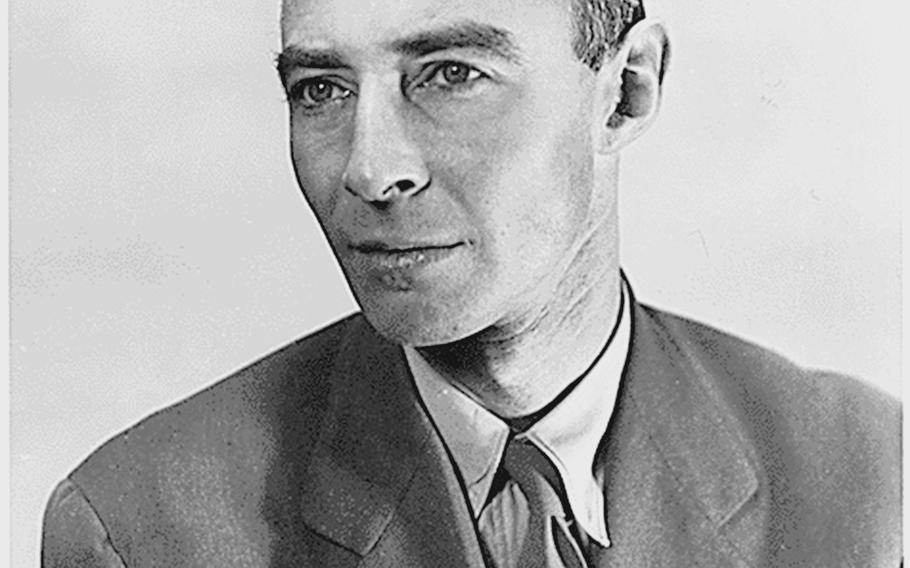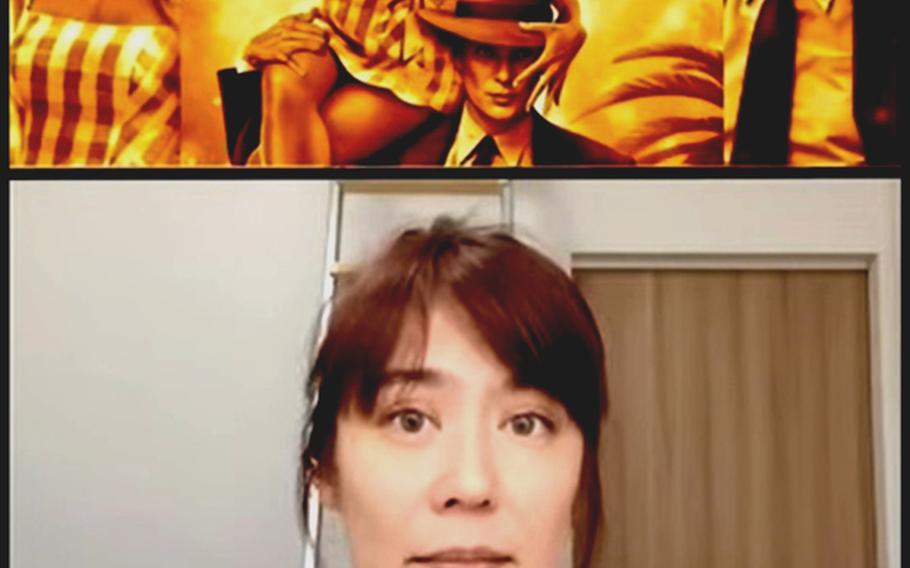
J. Robert Oppenheimer, director of the Manhattan Project at Los Alamos, N.M., in a 1944 photograph. (National Archives and Records Administration)
TOKYO – When “Barbie,” the live-action movie about a plastic doll, opened Friday in Japan, it did so without “Oppenheimer,” the rival film with which it shared a bill in the United States.
“Oppenheimer,” a biopic about the father of the atomic bomb, has no opening date in Japan, thus far, and Universal Studios has said nothing about the film coming to the only country targeted in anger with atomic weapons.
“Barbie” arrived divorced from its trendy “Barbenheimer” partner, a phenomenon in July in the United States but a cultural faux pas in Japan.
Film distributors will consider whether the movie will turn a profit before deciding to show it in Japan, said Kazuhiro Maeshima, a professor of global studies at Sophia University in Tokyo by phone Thursday. Later openings in Japan for U.S. films are not unusual, he said.
“They may decide that it’s better not to show it in Japan because of this reaction” to the “Barbenheimer” controversy, Maeshima said.
The two films were married on social media in a lighthearted, social-media meme called “Barbenheimer” that encouraged U.S. moviegoers to see the contrasting films in one day. Both movies opened July 21 in the U.S.
‘Summer to remember’
“Oppenheimer” is based on a Pulitzer Prize-winning biography of J. Robert Oppenheimer, who led the U.S. project during World War II that was first to develop an atomic weapon.
An Internet meme in late July that grafted images of its star, Cillian Murphy, with one of Margot Robbie, star of “Barbie,” unleashed outrage in Japan for its apparent insensitivity.
Warner Bros.’ official “Barbie” account on X, formerly known as Twitter, re-tweeted a fan-art poster showing Murphy’s Oppenheimer carrying Robbie as Barbie superimposed over a mushroom cloud.
“It’s going to be a summer to remember,” declared the tweet, since deleted.
Warner Bros. Japan was among the first to react.
“We consider it extremely regrettable that the official account of the American headquarters for the movie ‘Barbie’ reacted to the social media postings of ‘Barbenheimer’ fans,” Warner Bros. Japan tweeted on the “Barbie” Japan account.
“We take this situation very seriously. We are asking the U.S. headquarters to take appropriate action,” the tweet read. “We apologize to those who were offended by this series of inconsiderate reactions.”
The Warner Bros. Film Group the next day offered “a sincere apology” for “its recent insensitive social media engagement.”
Sachiko Ishikawa, a YouTuber from Tokyo who tries to demystify Japan by talking about its misconceptions, addressed the “Barbenheimer” flap in a video, “#Barbenheimer in Japan?!,” posted Wednesday.
“It’s not that the memes weren’t a problem, but what made it all snowball was the response,” Ishikawa told Stars and Stripes by phone Thursday. “The memes would’ve happened regardless, but the backlash was caused by the ‘Barbie’ official X reply.”
Living memory

Sachiko Ishikawa, a YouTube video blogger from Tokyo, talks about the "Barbenheimer" controversy in Japan against a backdrop of the fan poster on Aug. 9, 2023. (Sachiko Ishikawa/YouTube)
Ishikawa said she found the Japanese attitude toward “Oppenheimer” interesting. The comments on her video focus less on the meme controversy and more on the history of the atomic bomb.
People in Japan associate the atomic bomb and the mushroom cloud with an estimated 110,000 who died immediately and thousands more who suffered from the bombings, Maeshima said. Living survivors tell their stories to subsequent generations, so the atomic bombings are a reality for them, he said.
The Japanese are reminded of the bombings every August with the anniversaries of the attacks on Hiroshima and Nagasaki.
By contrast, in the U.S., the bombings are generally considered a good thing that quickly ended the war, and victims’ stories are reported less frequently, Maeshima said.
Even if the movie reaches Japanese theaters, it may fall flat following the “Barbenheimer” incident, he said.
“It depends on whether one can imagine the tragic situation the bombings have brought on people when thinking about the mushroom cloud,” he said.